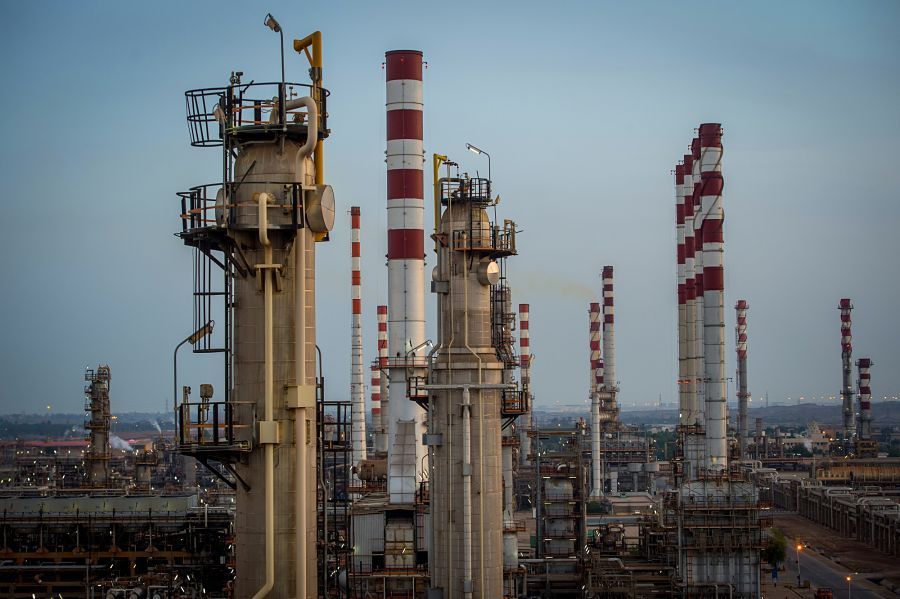More than 40 banks committed to reaching net zero by 2050 provided $145.9bn in financing last year to the 100 companies doing the most to expand oil, gas and coal, a banking report has found.
According to the authors of the 2022 Banking on Climate Chaos report, funding from the 44 banks included $11.6bn to QatarEnergy, $13bn to Saudi Aramco and $10bn to ExxonMobil. The three energy companies had a total of 42.7bn barrels of oil equivalent under development or field evaluation in 2021, the report stated.
JP Morgan Chase provided the highest amount of fossil fuel financing in 2021, at $61.7bn, and has been the top fossil fuel financer since 2016. Over the six-year period JP Morgan’s fossil fuel financing totalled $382.4bn.
Behind JP Morgan, for the six-year period, was Citi with $285.4bn, Wells Fargo with $271.8bn and Bank of America with $232bn of fossil fuel financing. Together, the four banks accounted for a quarter, or $1.2trn, of all fossil fuel financing identified over the last six years.
Bank financing for approximately 2,700 subsidiaries of 1,635 parent companies active across the fossil fuel life cycle (USD)
| Rank | Bank | 2021 | Total since 2016 |
| Total | 741,831,054,639 | 4,582,127,181,703 | |
| 1 | JPMorgan Chase | 61,732,469,271 | 382,403,227,363 |
| 2 | Wells Fargo | 46,215,372,768 | 271,819,305,551 |
| 3 | Citi | 41,351,153,152 | 285,370,347,248 |
| 4 | RBC | 38,757,115,920 | 201,228,588,630 |
| 5 | Bank of America | 31,977,957,452 | 232,011,498,334 |
| 6 | MUFG | 31,898,720,553 | 181,494,601,757 |
| 7 | Scotiabank | 30,402,496,036 | 149,344,043,295 |
| 8 | Mizuho | 27,712,692,812 | 155,744,059,587 |
| 9 | CIBC | 22,217,907,082 | 90,277,002,171 |
| 10 | Morgan Stanley | 21,422,879,511 | 137,286,862,954 |
| 11 | TD | 21,153,977,355 | 140,882,868,431 |
| 12 | SMBC Group | 19,970,158,016 | 109,274,963,089 |
| 13 | Barclays | 19,582,620,358 | 166,740,527,716 |
| 14 | Bank of Montreal | 18,780,783,997 | 117,089,658,223 |
| 15 | Agricultural Bank of China | 18,207,024,702 | 70,917,268,802 |
| 16 | HSBC | 17,975,978,843 | 130,467,892,870 |
| 17 | Goldman Sachs | 17,822,275,887 | 118,976,334,763 |
| 18 | ICBC | 17,489,915,449 | 112,763,938,122 |
| 19 | BNP Paribas | 14,745,286,425 | 141,605,120,686 |
| 20 | Industrial Bank | 14,385,965,231 | 66,952,453,313 |
The report authors looked at lending and underwriting of debt and equity issuances from the world’s 60 biggest banks to the fossil fuel sector. They also measured the same flows to top expanders of the fossil fuel industry and top companies in specific sectors.
“Fossil fuel financing from the world’s 60 largest banks has reached $4.6trn in the six years since the adoption of the Paris Agreement, with $742bn in fossil fuel financing in 2021 alone,” the report stated.
It went on to note the risk of fossil fuel financing staying level or increasing. “Taken as a whole, bank fossil fuel financing stayed flat from 2020 to 2021,” it said.
“As the economy continues to emerge from the Covid-19 pandemic, there is a real danger that bank fossil fuel financing could stay the same, or even increase, given that most major banks do not have policies in place to ensure that fossil fuel financing will decline.”
Driving expansion
The report details the discrepancy between the International Energy Agency’s warning last year that net zero by 2050 requires “no new oil and gas fields” and the fact the banks in the report are pouring billions of dollars in to companies with high rates of fossil fuel expansion.
For example, QatarEnergy – which had the equivalent of 20.1bn barrels of oil equivalent under development or field evaluation in 2021 – received total financing last year of $11.6bn from JP Morgan, Citi, HSBC, Goldman Sachs, Deutsche Bank, MUFG and Credit Suisse.
A statement from the Banking on Climate Chaos group of authors, which includes Rainforest Action Network, BankTrack, Indigenous Environmental Network, Oil Change International, Reclaim Finance, Sierra Club, and Urgewald, said: “In the next two months, all six Wall Street banks are expected to face shareholder resolutions calling on them to stop financing fossil fuel expansion and otherwise truly align their business practices with limiting global warming to 1.5°C.”
Necessary decline
David Tong, global industry campaign manager at Oil Change International commented: “It is past time to stop financing fossils. Oil, gas, and coal companies will not manage their own decline.
“The simple reality is that the fundamental arithmetic of 1.5°C requires oil and gas production to decline by at least 3-4% per year, starting now. But no major oil and gas company has committed to ending expansion, and banks around the world continue to pour billions into fossil fuels.
“That must stop now. If the banks’ responses to the climate crisis are to be taken seriously, they must commit to ending finance for fossil fuels.”
A JP Morgan spokesperson said: “In 2021, we facilitated more than $100bn for green activities like renewable energy, energy efficiency and sustainable transportation, doubled our green investment banking activity and were the largest underwriter of green bonds.
“These efforts help put us well on our way to our target of $1trn for green initiatives over 10 years. We are also taking pragmatic steps to meet our 2030 emission intensity reduction targets in oil and gas, electric power and automotive manufacturing, while helping the world meet its energy needs securely and affordably.”








